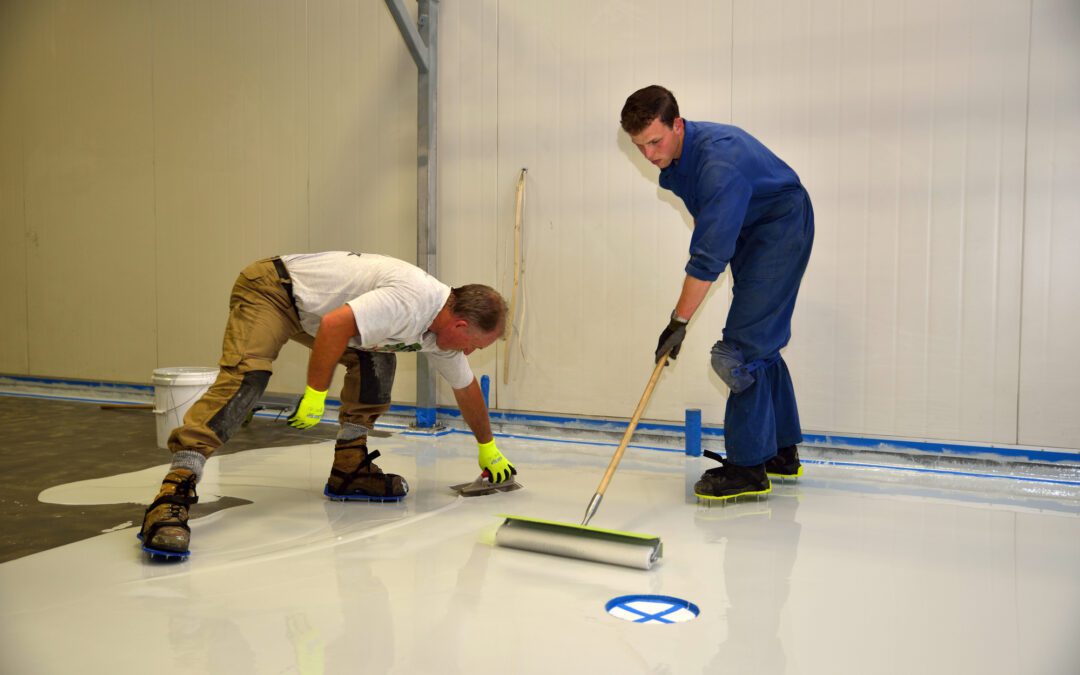Can you remember the heaviest object that you’ve dropped on a garage floor?
Anyone who experienced this in the past never wants to repeat the same mistake. Whether you use your garage for parking, storage, or home projects, your choice of flooring system could drive you up the wall down the road.
No matter how much experience you have, it pays to have expert advice from professionals who understand the pros and cons. You can benefit from our experience in less than five minutes by reading this article today.
Types of Garage Floors
How you use your garage will determine which type of flooring works best for your needs. Protecting your investment in your home begins and ends with understanding common types of garage floors:
Epoxy Paint
You’ve likely heard of epoxy paint before because it’s one of the most popular options. This treatment provides a durable product that also gives a shiny gloss to any garage floor. The affordability and eye-catching effect of a full chip system often draw the attention of first-time customers.
While it’s a cost-effective and reliable solution, epoxy paint also suffers from the fact that it’s a temporary solution. You will have to replace this solution eventually, especially once the chips and peeling portions start to drive you crazy.
Concrete Stain
A concrete stain gives an excellent first-impression due to its slick marbling appearance. Acid-based and water-based options exist with a wide variety of color options. You will also want a concrete sealer that protects the hard work put into the stain.
While they certainly look nice, this solution can cause headaches because it requires frequent updates to continue looking fresh. While the water-based options may have fewer toxicity problems, any acid-stain can create a garage full of fumes during application.
Carpet
You might not think of this option right away, but carpet can offer a decent solution that’s not as expensive as a metallic system. If your garage doubles as a multi-purpose room for lifting weights or working on a car, this can work nicely.
While the installation isn’t complex and doesn’t involve toxic chemicals, the drawbacks are obvious. While this will catch petroleum stains or other unsightly things, it’s not the most conventional choice for a garage flooring system.
Polyurea Coatings
You’re likely to know this coating in the wild from truck liners that protect beds from dings and scratches. The same protection in flexible material for your garage floor can work great in any environment.
Polyurea coatings set fast, apply without unsightly blisters or bubbles, and may last a decade or more in the right circumstances. As a bonus, it’s affordable for most budgets and eco-friendly.
Need More Help Choosing a Flooring System?
No matter what you choose to do for your garage, understanding the materials is only the start. After reviewing flooring system options for your garage, where do you go with more questions?
Contact us today through our website or give us a call at 864-735-0409! We’ll be thrilled to help you find the best fit for your home.

